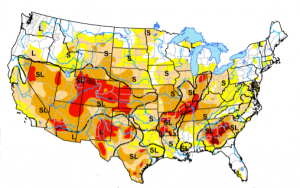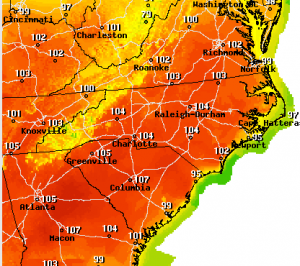This Micah Zenko and Michael Cohen essay, attacking the “threat inflation” in foreign affairs, is generating a lot of buzz. DDay wrote about it here, and Paul Pillar has a worthwhile addition here. At one level, I’m positively thrilled that this sentiment is being expressed in the bible of the foreign policy establishment, Foreign Affairs.
Within the foreign policy elite, there exists a pervasive belief that the post–Cold War world is a treacherous place, full of great uncertainty and grave risks. A 2009 survey conducted by the Pew Research Center for the People and the Press found that 69 percent of members of the Council on Foreign Relations believed that for the United States at that moment, the world was either as dangerous as or more dangerous than it was during the Cold War. Similarly, in 2008, the Center for American Progress surveyed more than 100 foreign policy experts and found that 70 percent of them believed that the world was becoming more dangerous. Perhaps more than any other idea, this belief shapes debates on U.S. foreign policy and frames the public’s understanding of international affairs.
There is just one problem. It is simply wrong. The world that the United States inhabits today is a remarkably safe and secure place. It is a world with fewer violent conflicts and greater political freedom than at virtually any other point in human history. All over the world, people enjoy longer life expectancy and greater economic opportunity than ever before. The United States faces no plausible existential threats, no great-power rival, and no near-term competition for the role of global hegemon. The U.S. military is the world’s most powerful, and even in the middle of a sustained downturn, the U.S. economy remains among one of the world’s most vibrant and adaptive. Although the United States faces a host of international challenges, they pose little risk to the overwhelming majority of American citizens and can be managed with existing diplomatic, economic, and, to a much lesser extent, military tools.
But there’s just one problem with their argument. “It is simply wrong.”
This is an over 5,000-word article, 16 pages long.
And while Zenko and Cohen discuss non-military threats–primarily health and economics and cybersecurity–they [update (see below)–almost] never discuss climate change.
That’s largely a reflection of the paradigm of foreign policy. After all, climate change doesn’t pose a unique, comparative threat to the US. It’s a real, pressing threat to the entire globe at once.
But that doesn’t mean the US–and every other country–is as safe as Zenko and Cohen claim. It just means the risk–one that transcends boundaries and nationalities, though is exacerbated by the latter–doesn’t fit the framework foreign policy wonks work under. And until the foreign policy community gets that climate change should be today’s key foreign policy issue–one that will disrupt the current paradigm of international relations, sure, but as such (particularly given all the very legitimate points Zenko and Cohen make about other threats) really ought to represent an opportunity as well as an imperative.
Update: I apologize to Zenko and Cohen: They do too mention climate change: once, in the following passage.
Indeed, the most lamentable cost of unceasing threat exaggeration and a focus on military force is that the main global challenges facing the United States today are poorly resourced and given far less attention than “sexier” problems, such as war and terrorism. These include climate change, pandemic diseases, global economic instability, and transnational criminal networks—all of which could serve as catalysts to severe and direct challenges to U.S. security interests. But these concerns are less visceral than alleged threats from terrorism and rogue nuclear states. They require long-term planning and occasionally painful solutions, and they are not constantly hyped by well-financed interest groups. As a result, they are given short shrift in national security discourse and policymaking. [my emphasis]
My point still stands though: Climate change is not a catalyst to severe challenges, it is in fact, itself, a challenge (and also contributes to instability and migration and food insecurity which will be catalysts to insecurity).
So I apologize to Zenko and Cohen for accusing them of being “blind,” though I still think the claim that no real threats face the US to be “simply wrong.” And thanks to Cohen for alerting me of my initial error.


